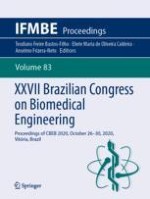2022 | OriginalPaper | Chapter
Analysis of Respiratory EMG Signals for Cough Prediction
Authors : T. D. Costa, T. Z. Zanella, C. S. Cristino, C. Druzgalski, Guilherme Nunes Nogueira-Neto, P. Nohama
Published in: XXVII Brazilian Congress on Biomedical Engineering
Publisher: Springer International Publishing
Activate our intelligent search to find suitable subject content or patents.
Select sections of text to find matching patents with Artificial Intelligence. powered by
Select sections of text to find additional relevant content using AI-assisted search. powered by
